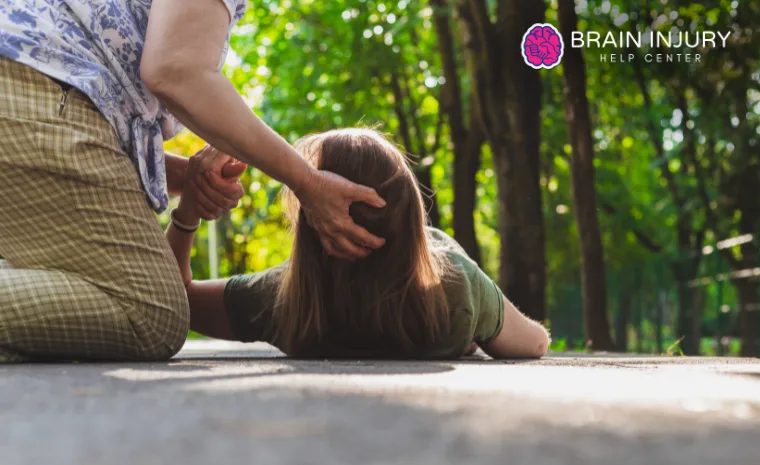Have you or a loved one experienced a brain injury? The aftermath of such severe injuries can lead to unexpected challenges, one of which is the potential development of epilepsy.
Understanding how a traumatic brain injury can result in epilepsy is vital for navigating daily activities and ensuring proper medical care. Exploring the link between brain damage and epilepsy empowers us with the knowledge to make informed decisions and seek support.
Keep reading to discover the connection between traumatic injury and epilepsy and learn strategies for managing this complex condition effectively.
What Exactly Counts as a Brain Injury?
A brain injury refers to any type of injury that affects the brain’s normal functioning. These injuries can vary widely in severity, from mild concussions to severe head traumas. Common causes of brain injuries from accidents include falls, car accidents, impacts from objects, or incidents during sports activities.
Even seemingly minor incidents can lead to significant brain damage, impacting daily activities. This risk is especially high for people with severe head injuries involving damage to blood vessels or brain tissue.
Is There a Connection Between TBI and Epilepsy?
Post-traumatic epilepsy (PTE) is a complication that can arise after a severe brain injury. Traumatic brain injury (TBI) is a leading cause of death in young adults and increases the risk of developing epilepsy.
Severe TBI can lead to various long-term mental health and brain function problems with different related conditions. Unfortunately, the brain may never fully recover its normal balance.
Seizures that occur within the first week of a TBI are usually an acute response, while those occurring later are considered manifestations of PTE.
Key predictors of PTE:
- The severity of the head injury
- The presence of internal bleeding in the brain
- Early post-traumatic seizures
For those affected, post-traumatic epilepsy can disrupt daily living and may lead to permanent disabilities. Understanding the common key predictors of PTE is crucial for seeking appropriate medical attention and support.
When Can Epilepsy Develop After a Head Injury?
About 35-40% of people with PTE have their first seizure within six months of the injury, 50% within the first year, and nearly 80% within two years. Within two years, up to 86% of TBI survivors who have their initial post-traumatic seizure will experience a second one. This high likelihood justifies diagnosing post-traumatic epilepsy after a single late post-traumatic seizure.
Can Post-Traumatic Epilepsy Go Away?
At present, there are no treatments or cures that effectively address PTE. Individuals who have suffered a severe head injury and developed PTE may experience its effects for an indefinite period. Knowing the long-term effects of head injury is crucial for managing and supporting those affected by PTE.

Managing Epilepsy After Brain Injuries
Now that you understand the potential risks and symptoms of epilepsy following head injuries, let’s delve into the crucial aspects of managing this condition effectively:
- Immediate Management: Ensuring emergency medical attention to protect individuals during seizures and postictal states, minimizing the risk of further injury.
- Consultation with Neurologists: Referral to neurologists for comprehensive assessments and selection of suitable anti-epileptic drugs (AEDs) tailored to individual needs.
- Comprehensive Treatment Plans: Holistic treatment plans that address not just seizures but also other severe head injury issues, such as cognitive and emotional changes.
- Ongoing Medical Care: Emphasizing the need for consistent medical monitoring and adjustments to treatment plans as needed, involving medical personnel experienced in brain trauma care.
Support and Resources
Explore support groups in California for individuals coping with brain injuries and epilepsy, such as the Brain Injury Association of America. Additionally, consider reaching out to the Brain Injury Help Center for legal assistance and health information tailored to your needs.
Joining support groups in California can offer valuable resources and a supportive community. It can aid in coping and recovery from the challenges of traumatic injuries and permanent brain damage, helping you navigate back to normal activities with greater resilience.
Seek Support Today
Head injuries from accidents can lead to epilepsy. People with head injury issues must seek medical advice if experiencing symptoms like loss of consciousness or double vision. Remember, your healthcare provider can offer personalized guidance to manage everyday activities.
Seeking more resources and support? Don’t hesitate to contact us if you need legal assistance. Together, we can work towards better understanding and managing brain injury-related challenges.
If you think this information could benefit others, we’d appreciate it if you could share it.









